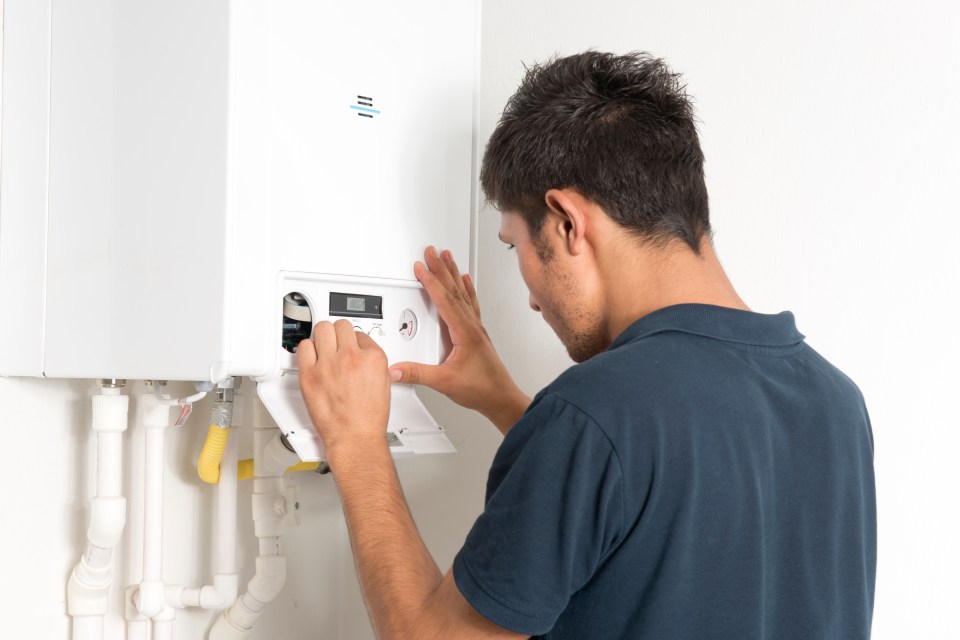You’ve been setting your boiler timer wrong

HEATING up your home in the harshest and coldest months can be costly and add hundreds to your energy bill.
Most Brits have been using their boilers incorrectly though, and that may be what's driving up the price.
Boilers will come with a timer, that lets you choose when you want it to fire up.
If you use this accurately you can time when your radiators will heat up and optimise the benefit you get out of a warmer home - driving down your costs with it.
Households are forking out hundreds more than they used to for their bills, as energy prices continue to rise.
they're expected to go up by at least 51% this year according to Cornwall Insights and bills could jump by another £600 before long too.
In response, the says that you should have the heating on only when you need it to save splashing out on wasteful energy.
That's because heat is always escaping from the home, so the expert advice is to minimise that happening as much as possible.
Most read in Money
Of course, plugging up all the gaps will stop some of that heat escaping but not all of it.
It's still important to make sure you're not wasting energy by letting it trickle out uninsulated walls or through your chimney or the cracks under the doors, and you can do that from as little as £3 with excluders or DIY tips and tricks.
Going full whack with proper loft or wall insulation will mean you have to fork out over £1,000 upfront, but it could help save up to £300 a year too, earning back your investment before long.
But all that goes to waste if you keep the heating on all day and don't watch the timings on your boiler.
Andy Kerr, the co-founder of boiler and smart home technology provider , said: "Leaving the heating on permanently can lead to a rise in energy bills.
"In properties with less insulation, heat is quickly lost in the colder months, so scheduling your heating to come on just before you come home from work will save a significant amount of money, and may not alter the indoor temperature you arrive to by much."
When should I have the heating on?
Leaving the heating on all day could add as much as £140 a year to your energy bills according to the Energy Saving Trust.
Most households make this mistake especially when they've got pets who reign over the livingroom, bedrooms and more while owners are away through the day at work.
They think they've got to leave the heating on for their furry friends but they're mistaken as the animals have their own winter coats to keep them warm, so they don't benefit from their owner being wasteful with the energy bills.
If you're not leaving the heating on for the full 24 hours of the day though, when should it be on?
The experts at BOXT say that homeowners should leave the boiler on between the times of 6.30am and 10.30pm.
You won't need it at night while you're sleeping and having a hot home will only keep you up anyway.
But you also shouldn't keep it on continuously through those times if you're not going to be there.
Andy Kerr said: "You can use a smart home thermostat, like the Google Nest, to create a schedule based on your home heating preferences."
But you should turn the boiler completely off or at least reduce the temperature whenever you leave home or go to work.
Does it matter what temperature it's on?
Most households set their thermostat above 22°C, but that's actually 3°C higher than needed to be comfortable.
And with each degree that you lower the temperature you could save as much as £80 a year.
But experts reckon you should switch up the heating depending on the time of day and whether you're in or not.
Andy Kerr said: “Instead of setting one temperature across the whole day, try switching between daytime and nighttime temperatures, as this may reduce your energy usage.
“To minimise instances where you leave the heating on accidentally or let the home get too warm, try scheduling specific times and temperatures throughout the day."
Read More on The Sun
If you upgrade to a smart thermostat, you could save as much as £164 a year too.
It'll connect your heating system to the internet so you can turn down temperatures on your phone while you're out and about.
We pay for your stories!
Do you have a story for The Sun Online Money team?
Email us at money@the-sun.co.uk














